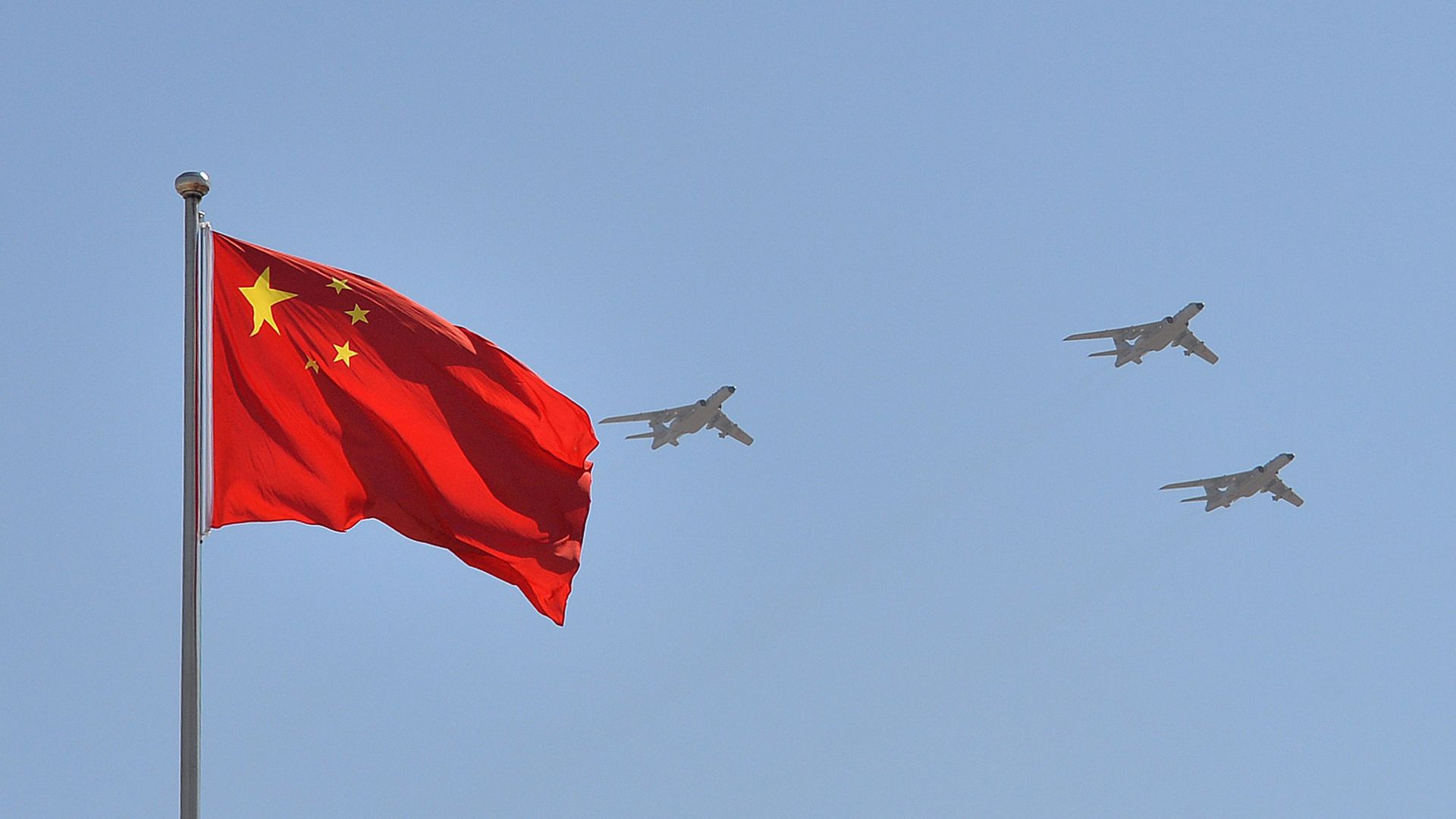Chinese military expansion raises stakes of challenge to the U.S.
Add Axios as your preferred source to
see more of our stories on Google.

H-6K bombers fly in formation during a military parade at Zhurihe military training base. Photo: Cui Nan/CHINA NEWS SERVICE/VCG via Getty Images
A Chinese H-6K bomber landed on Woody Island in the Parcels last week — the first time a Chinese military aircraft has touched down on one of the disputed islands in the South China Sea, and a strong assertion of sovereignty by Beijing.
Why it matters: China is not only restoring its place as the dominant power in Asia, but also extending its presence and influence far beyond. Along the way, it has become the most significant global competitor the U.S. has ever faced.
The significance of China’s challenge is due to its mix of legitimate economic and diplomatic activities (those conducted within the rules of the current international system) and illegitimate ones (those outside the rules). The former include investing massive amounts in educational and cultural programs to enhance its soft power and building its own set of free-trade agreements, institutions and programs that, while legitimate, are designed to exclude the U.S. and increase China’s influence at American expense. China’s illegitimate activities include intellectual property theft for commercial gain, economic coercion to gain technology for its own companies or bend other countries to its will, intervenroom in foreign politics to secure more China-friendly policies, seizure of contested territories, and a disregard for rulings by international institutions not to its liking.
Militarily, China is on a path to become a peer the likes of which the U.S. has not seen since the Soviet Union. Beijing has invested wisely in systems designed to counter those of the U.S. The Chinese know that any contest in Asia between China and an adversary will be first a matter of naval and air combat, and they have prepared accordingly by developing sophisticated counter-space, counter-air and counter-maritime capabilities. Combined with profound organizational reforms, China’s weapons modernization will leave its forces much more capable of projecting military power beyond Chinese shores.
The bottom line: In the U.S., there is no consensus -- indeed, hardly much debate -- about an overarching strategy to deal with China. Without one, the U.S is doomed to continue ceding ground and possibly worse -- facing China in a military contest.
Michael Morell is global chairman of geopolitical risk at Beacon Global Strategies, a former deputy director of the CIA, and a CBS commentator and host of the podcast "Intelligence Matters."
